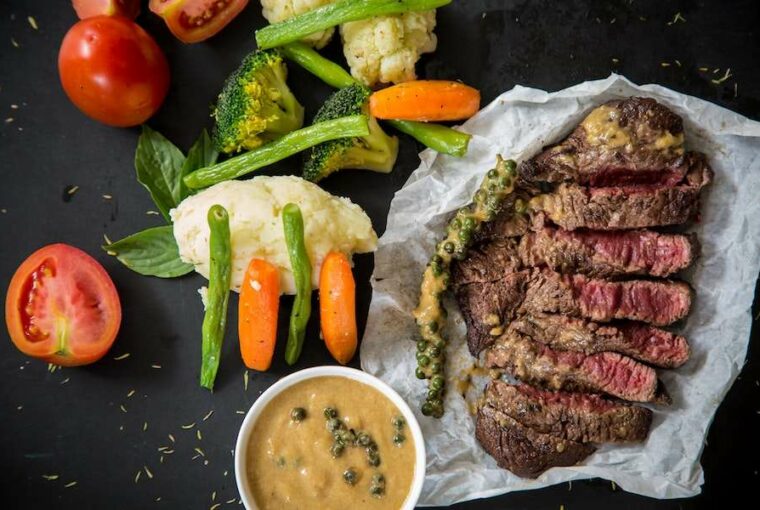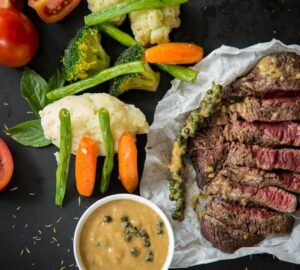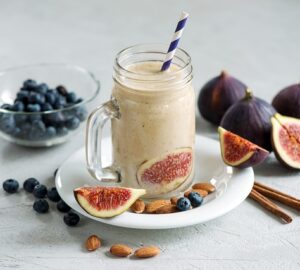Eating enough protein is essential for everyone, but for athletes and bodybuilders, it is especially important. Protein is the building block for muscle, and consuming the right amount of it will help you reach your goals. But how do you make sure you’re getting all the protein you need? How to eat 170 grams of protein a day may seem like a daunting task, but with the right plan and the right ingredients, you can easily reach your daily protein goal. Eating a variety of high-protein foods, such as lean meats, fish, eggs, and legumes, can help you reach your target. Additionally, adding protein powders, shakes, and snacks to your daily diet can help you reach your goals. With the right plan and the right ingredients, you can easily get all the protein you need each day.
How To Eat 170 Grams Of A Day
- Eat Lean Meats: Lean meats, such as chicken and turkey, are excellent sources of protein. A 3-ounce serving of skinless chicken provides about 27 grams of protein. Try to eat lean meats at least three times a day to reach your daily protein goal.
- Include Fish: Fish is also a great way to get your daily dose of protein. A 3-ounce serving of salmon provides about 17 grams of protein. Try to include fish in your diet at least twice a week for optimal results.
- Eat Eggs: Eggs are one of the best sources of complete proteins, providing all the essential amino acids our bodies need for muscle growth and repair. Two large eggs provide about 12 grams of protein, so try to eat them every day if you can.
- Snack on Nuts and Seeds: Nuts and seeds are also high in protein and can be used as snacks throughout the day or as part of meals or salads. A quarter cup of almonds provides about 8 grams of protein, and a tablespoon of chia seeds provides about 4 grams.
- Use Protein Powders and Shakes: Protein powders and shakes are great for adding extra protein to your diet if you’re having trouble reaching your daily goal. A scoop of whey protein powder typically contains around 25 grams of protein.
- Eat Legumes: Legumes, such as beans, lentils, and peas, are also excellent sources of plant-based proteins. One cup of cooked chickpeas provides about 14 grams of protein, making them a great addition to salads or soups.
- Include Greek Yogurt: Greek yogurt is packed with protein and can be eaten as part of breakfast or snacks throughout the day. One cup of plain Greek yogurt provides about 23 grams of protein.
What Is Protein, And Why Is It Important?
- Protein is a nutrient that plays an important role in the growth and repair of tissues in the body. It is made up of amino acids, which are the building blocks of muscle. Eating enough protein helps support muscle growth and repair while also helping the body stay healthy and strong.
- Lean meats such as chicken, turkey, beef, and fish are all good sources of protein. Aim for about 4-6 ounces of lean meat per day to reach your daily protein goal.
- Eggs are also a great source of protein. One large egg contains about 6 grams of protein, so eating two eggs for breakfast can help you reach your daily goals.
- Legumes such as beans, lentils, peas, and chickpeas are all high in protein as well. Try adding 1/2 cup of cooked beans to salads or soups for an extra boost of protein throughout the day.
- Protein powders such as whey or plant-based proteins are also a great way to reach your daily protein goals. Protein powders can be added to smoothies or shakes for an easy, convenient way to get your protein.
- Snacking on high-protein snacks such as nuts and seeds, Greek yogurt, and cottage cheese can also help you reach your daily goals.
- Lastly, adding a few tablespoons of nut butter to your breakfast or snack can also help you reach your daily protein goal.
Recommended Daily Protein Intake
- Lean meats: Consume a variety of lean meats, such as chicken, turkey, and lean beef. Try to opt for organic, grass-fed, and hormone-free varieties whenever possible.
- Fish: Consume fish such as salmon, tuna, mackerel, and trout at least twice a week.
- Eggs: Eat eggs daily for breakfast or as part of your meals throughout the day.
- Legumes: Incorporate legumes such as lentils, beans, and peas into your diet regularly for added protein and other nutrients like fiber and iron.
- Protein powders: Add protein powders such as whey or plant-based proteins to smoothies or shakes for an extra boost of protein throughout the day.
- Nuts & Seeds: Add nuts and seeds to meals or snack on them throughout the day to get an extra boost of protein along with healthy fats and other nutrients like zinc and magnesium.
- Dairy: Include dairy products such as Greek yogurt, cottage cheese, and milk into your diet for added protein.
- Protein-rich snacks: Look for snacks such as protein bars, jerky, and nuts that are high in protein to help you reach your daily intake goals.
Sources Of Lean Proteins
- Lean meats: Chicken, turkey, pork, and beef are all good sources of lean protein. These can be cooked in a variety of ways to make them more palatable.
- Fish: Salmon, tuna, and other fatty fish are rich in protein and omega-3 fatty acids.
- Eggs: Egg whites are a great source of protein, and they can be used in a variety of recipes.
- Legumes: Lentils, beans, chickpeas, and other legumes are high in protein and fiber. They’re also versatile enough to be used in many dishes.
- Nuts & Seeds: Almonds, walnuts, sunflower seeds, chia seeds—all these nuts and seeds are packed with protein as well as healthy fats and fiber.
- Dairy Products: Milk is an excellent source of protein along with calcium; a yogurt is also a great option for adding additional protein to your diet.
- Protein Powders: Protein powders are an easy way to add extra protein to your diet. They can be mixed into smoothies, shakes, or baked goods.
- Protein Bars & Snacks: Protein bars and snacks are a convenient way to get your daily dose of protein. Look for bars high in protein and low in sugar for the best results.
Benefits Of Adding Protein Supplements To Your Diet
- Protein supplements can help you reach your daily protein goal quickly and easily.
- Protein supplements are a convenient way to get the protein you need without having to cook or prepare meals.
- Protein supplements are often fortified with other essential vitamins and minerals, making them an ideal choice for those with busy lifestyles.
- Protein supplements can be tailored to meet the needs of different individuals, such as those who may require more protein due to their active lifestyles or medical conditions.
- Protein supplements are a great way to boost energy levels and improve muscle recovery after workouts.
Tips For Incorporating Protein Into Your Diet
- Eat lean meats such as chicken, turkey, and fish.
- Add eggs to your diet for a quick and easy protein source.
- Incorporate legumes such as beans, lentils, and chickpeas into your meals.
- Include Greek yogurt in your snacks or meals to get extra protein.
- Add protein powder to smoothies or shakes for an additional protein boost.
- Enjoy nuts and seeds as snacks, or add them to salads for a crunchy protein boost.
- Have a handful of high-protein snacks on hand, such as jerky, hard-boiled eggs, or edamame, for when you need an extra dose of protein throughout the day
Common Mistakes To Avoid When Reaching Your Protein Intake Goals
- Eating too much-processed food: Processed foods are often high in fat and low in nutrients. They can also contain added sugars, leading to weight gain and other health issues. Instead, opt for whole foods that are high in protein and low in unhealthy fats.
- Not eating enough healthy fats: Healthy fats, such as olive oil, avocados, and nuts, are necessary for a balanced diet. Fats provide essential fatty acids that your body needs to function correctly.
- Not eating enough vegetables: Vegetables are an excellent source of vitamins, minerals, and fiber that help keep you full longer and aid in digestion. Make sure to include plenty of dark leafy greens like spinach or kale in your meals to get the most nutrition out of your food.
- Not tracking what you eat: Tracking what you eat is one of the best ways to make sure you’re getting enough protein each day. Use a food journal or app to keep track of your daily protein intake and ensure you’re hitting your goals
- Relying too heavily on protein powders: Protein powders can be a great way to get extra protein in your diet, but they should not be your only source of protein. Make sure to include plenty of whole foods like lean meats, fish, eggs, and legumes for the most nutrition and health benefits.
Conclusion
Eating enough protein isn’t easy, but it’s crucial to reaching your fitness goals. Protein is the building block of muscle, and consuming it will help you build muscle and reach your goals. Eating a variety of high-protein foods can help you reach your protein goals. Including protein-rich foods at every meal is the best way to meet your protein needs. You can easily add protein to any meal by using various protein-rich ingredients. With the right plan and the right ingredients, you can easily reach your protein goals.




